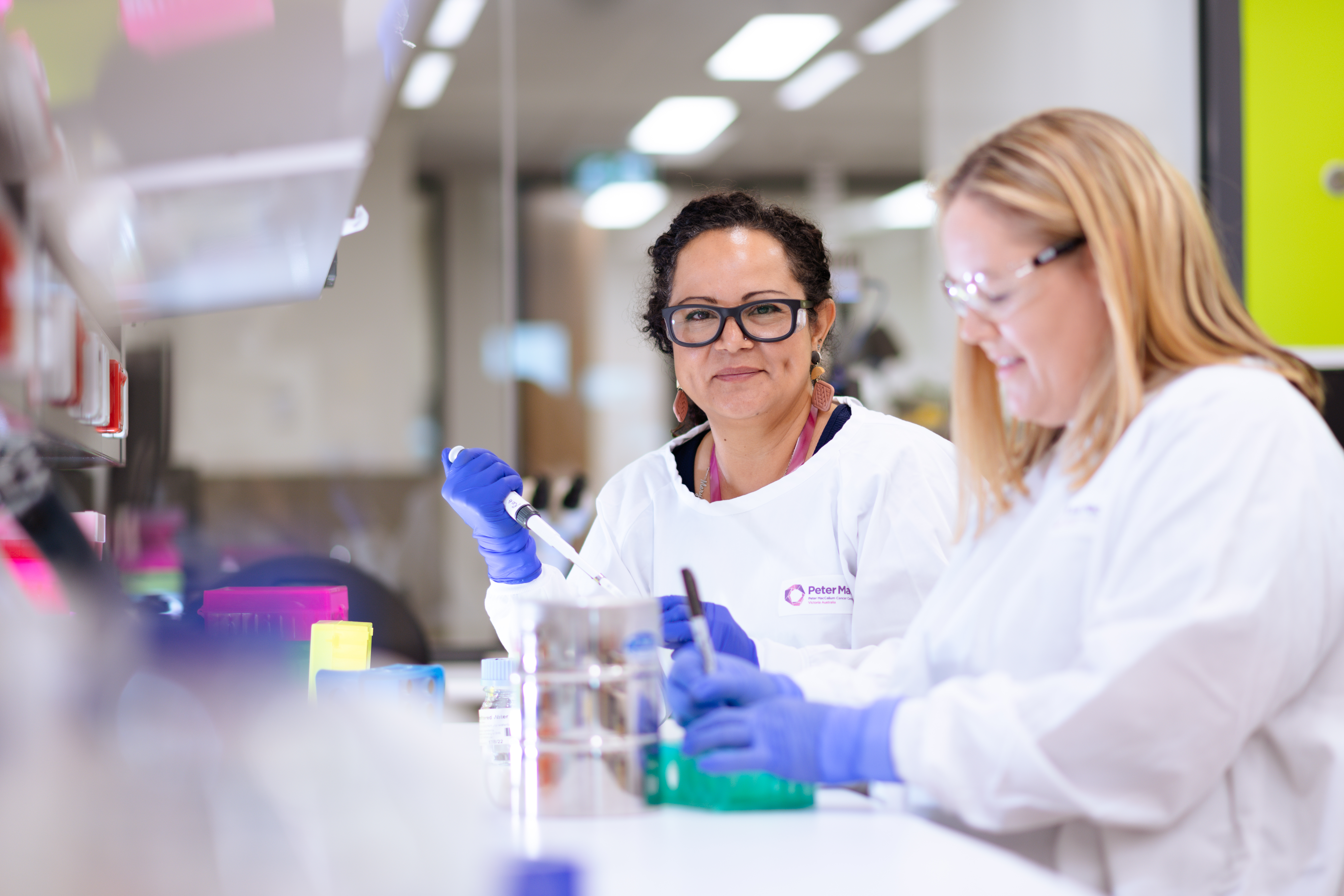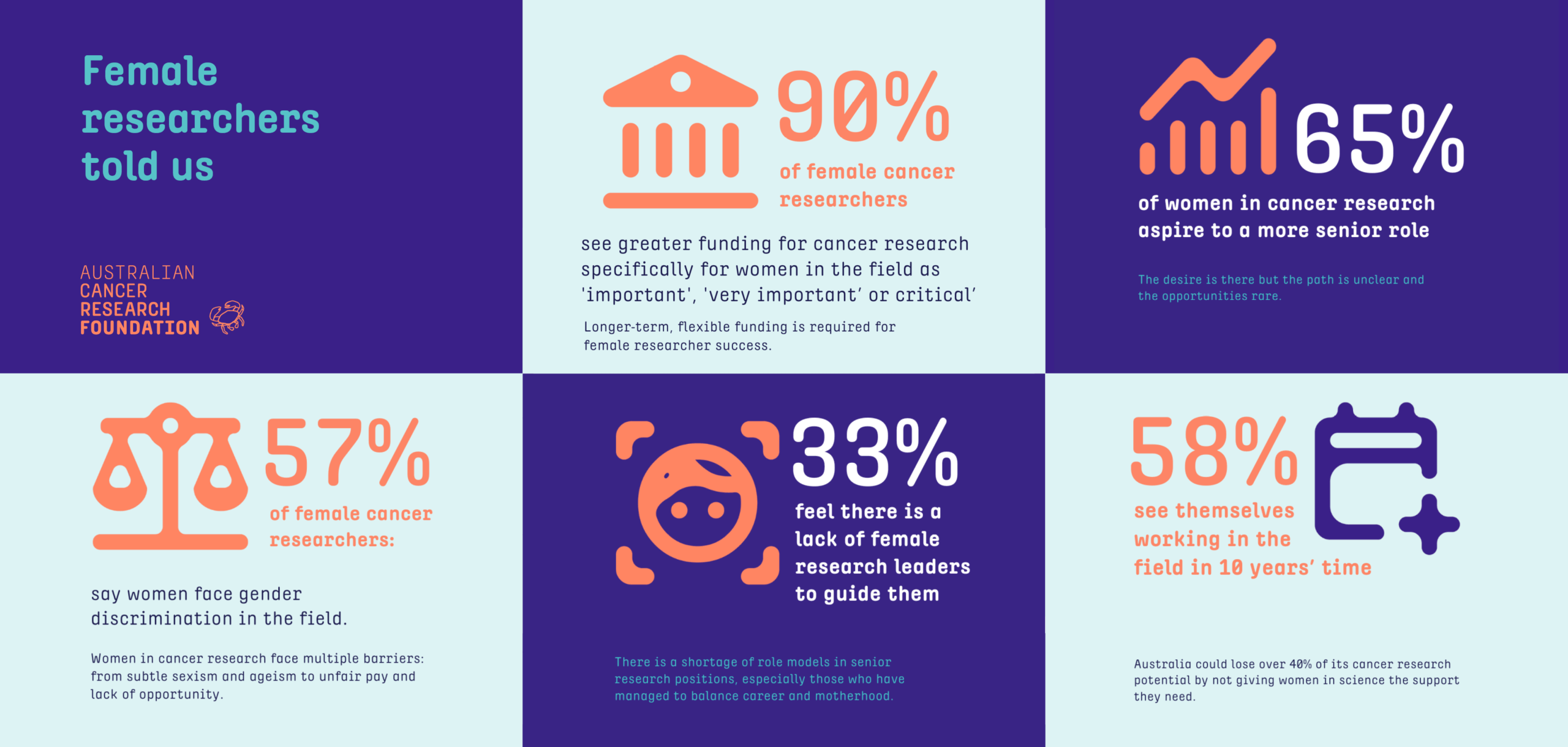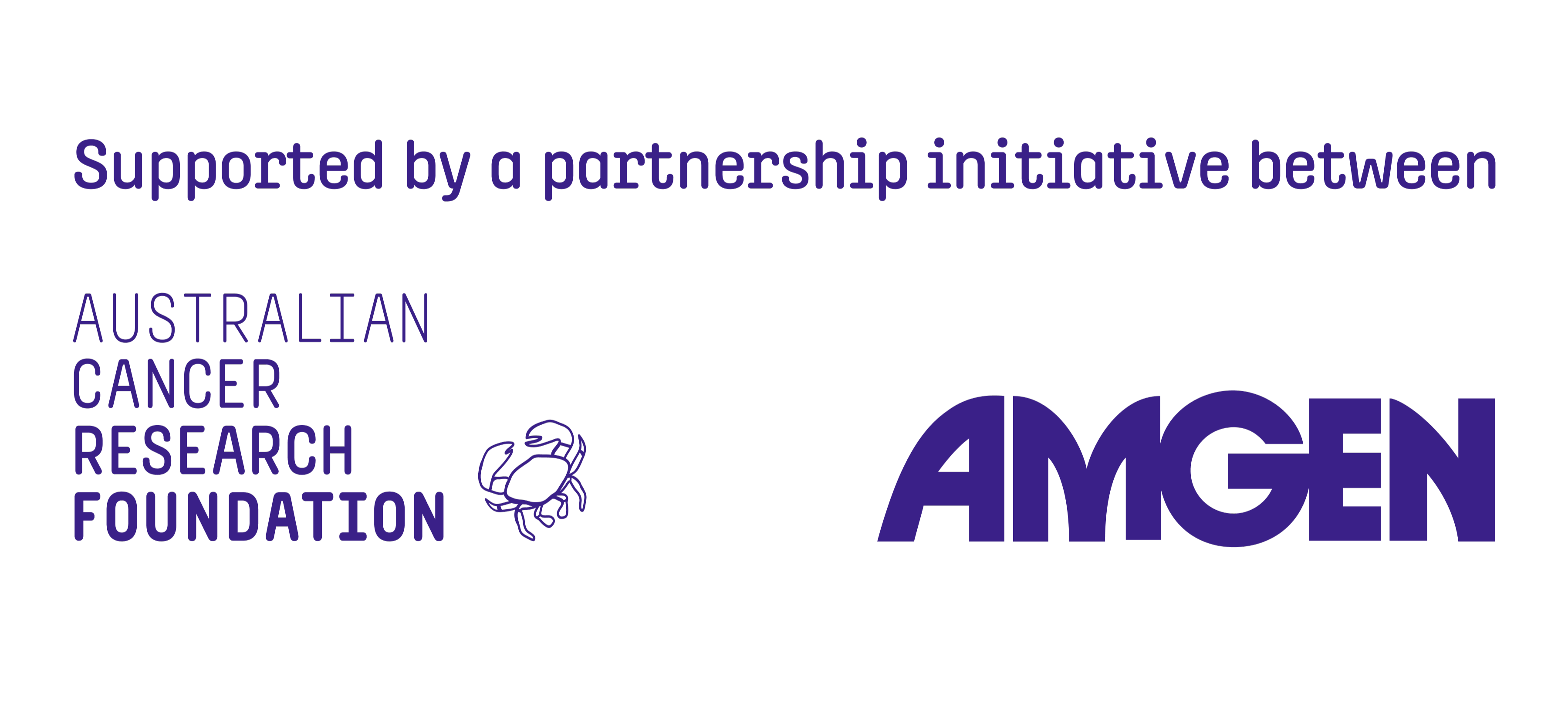
Empowering Women in Cancer Research
Supporting the bright minds dedicating their lives to cancer research
A 3-year partnership between Amgen and Australian Cancer Research Foundation, built around a shared vision to advance gender diversity in the field and to empower women at every stage of their careers.
A partnership to support diversity and inclusion
In late 2024, ACRF and Amgen entered a partnership to champion the role of women in oncology and related fields. We seek to support, amplify, and celebrate the contributions of female researchers across Australia, ultimately working toward improved patient outcomes and breakthroughs in cancer treatment.
This innovative collaboration aims to address the critical need for greater female representation and leadership in the field, fostering breakthroughs from the laboratory to clinical care. This 3-year partnership is built around a shared vision to advance gender diversity in the field and to empower women at every stage of their careers.
The key aims for this innovative partnership
Amplifying Women-Led Innovation: Encouraging and supporting female researchers to lead transformative projects in cancer research.
Sustaining Impactful Research Careers: Providing resources, mentorship, and funding opportunities tailored to the unique challenges faced.
Advancing Career Progression: Equipping women and creating pathways to leadership roles with the potential to shape the future of cancer research. Driving Gender Diversity in Innovation: Empowering diverse thinkers to tackle cancer, one of the world’s greatest challenges, with the goal of getting closer to a world without cancer.
The Women in Cancer Research Survey
Early this year we conducted a research survey amongst 200 women currently working in Cancer Research to gain a deeper understanding of the unique obstacles and opportunities women face. The results from this survey have allowed us to assess the current status quo and utilise the findings to develop webinar content that is truly meeting a need for women working in the field. By shining a light on this important topic, we are hoping to not just support women in the field, but to also accelerate life-changing cancer research for everyone impacted by this devastating disease.

